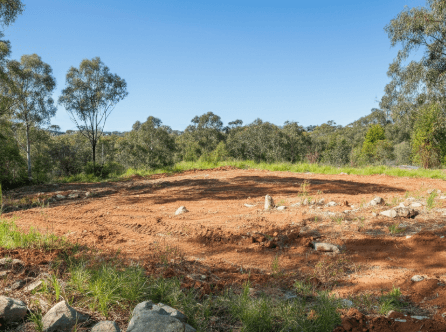Is land easy to flip? While land flipping can be profitable with thorough research and strategic planning, it demands understanding market trends, zoning laws, and legalities. Regarding real estate investments, one question often arises: Is land easy to flip? This intriguing query points to the potential of turning a profit swiftly in the land market. Read on as we delve into the factors determining “Is land easy to flip,” including market conditions, legal considerations, and strategic approaches to help you make informed choices and optimize your returns.
Seasoned real estate investors Steve Daria and Joleigh have successfully navigated the complexities of land flipping, attributing their success to thorough market research and strategic planning. They emphasize the importance of understanding local zoning laws and staying updated on market trends to make profitable decisions. By doing so, Steve and Joleigh have consistently maximized their returns, proving that land flipping can be a lucrative venture with the right approach.
What is Land Flipping?
Before answering “Is land easy to flip?” It’s essential to understand that land flipping is a real estate investment practice where you buy and sell land for a profit.
Unlike house flipping, which involves renovating and selling homes, land flipping focuses solely on vacant land.
The goal is to purchase land at a low price and sell it higher, often without making any improvements to the property.

Why Choose Land Flipping?
Land flipping offers several advantages:
- Lower Initial Investment: Unlike homes, vacant land is generally cheaper, making it more accessible for beginners.
- Minimal Maintenance: With no buildings or tenants to worry about, land requires less upkeep.
- High ROI Potential: If you buy land in a developing area, its value can skyrocket, offering substantial returns.
Is Land Easy to Flip? The Basics Explained
Before you jump into land flipping, it’s crucial to understand the basics.
Here are the fundamental steps involved:
Researching the Market
Start by researching the real estate market.
Look for areas with growth potential, such as upcoming developments or expanding cities.
Websites like Zillow and Realtor.com can provide valuable data on land prices and trends.
Finding the Right Property
Once you’ve identified a promising market, the next step is finding the right property.
Consider the following factors:
- Location: Being close to essential amenities such as shopping centers, schools, and healthcare facilities can increase a piece of land’s desirability and market value.
- Zoning Laws: Zoning regulations determine how a piece of land can be used and can affect its marketability and development potential.
- Access to Utilities: Assessing access to utilities such as water, electricity, sewage systems, and roads is essential for the development and usability of the land.
Financing Your Purchase
There are several financing options for purchasing land:
- Cash: Having cash on hand for a land purchase can make you a more attractive buyer to sellers, as it eliminates the need for financing contingencies and ensures a quicker closing process.
- Loans: While land loans can provide financing options for buyers who need more cash reserves, they usually come with stricter eligibility criteria and higher costs.
- Seller Financing: Seller financing can be a better option for buyers who may not be eligible for traditional loans or prefer more flexible terms.
Get Started: Get Your Cash Offer Below…
We are direct land buyers. There are no commissions or fees and no obligation whatsoever. Start below by sharing where your property is and where we can send your offer…
Strategies for Successful Land Flipping
To answer the question “Is land easy to flip?”, it’s essential to have a well-thought-out strategy.
Here are some practical approaches:
Buy and Hold
One common strategy is to buy land and hold onto it until its value increases.
This approach requires patience but can yield significant returns, especially in rapidly developing areas.
Investors who choose this strategy typically benefit from long-term appreciation and potential tax advantages associated with owning land.
However, conducting thorough research and assessing the market dynamics is essential before committing to a buy-and-hold strategy.
Quick Flip
If you’re looking for faster returns, consider a quick flip.
This includes buying land at a low price and selling it quickly, often within a few months.
To succeed with this strategy, focus on undervalued properties with high resale potential.
Additionally, be ready to invest in marketing and improvements to maximize the property’s appeal to potential buyers.
Lease Options
Another option is to lease the land while you wait for its value to increase.
This can generate passive income and cover carrying expenses like property taxes and maintenance expenses.
Lease options provide flexibility for buyers and sellers, allowing them to review terms that suit their needs.
However, it’s essential to carefully review the lease agreement and consider factors such as lease duration, rental income, and potential risks before entering such arrangements.
Tips for First-Time Land Flippers
If you’re new to land flipping, and wondering “Is land easy to flip?” These tips can help you get started:
Start Small
To minimize risk, begin with a small, affordable piece of land.
As you gain experience and confidence, you can move on to larger, more valuable properties.
Network with Professionals
Invest in building relationships with real estate agents, appraisers, and other professionals who can give valuable insights and assistance.
Networking can also help you find off-market deals and potential buyers.

Stay Informed
Keep up with market trends, zoning changes, and other land value factors.
The more informed you are, the better decisions you’ll make.
Common Challenges in Land Flipping
While land flipping can be profitable, it’s challenging.
Here are some common obstacles and how to overcome them:
Market Volatility
Real estate markets can be unpredictable.
To mitigate this risk, diversify your investments and avoid putting all your capital into a single property.
Zoning Restrictions
Zoning laws can limit how you can use or develop the land.
Before buying, consult with local authorities to ensure the property suits your intended use.
Lack of Buyers
Finding a buyer can take time, especially in a slow market.
To increase your chances of a quick sale, price the land competitively and market it effectively.
Conclusion
Now that we have answered the question “Is land easy to flip?” Land flipping offers a unique and potentially lucrative opportunity for real estate investors, property developers, first-time buyers, land sellers, and property owners in Florida.
You can increase your chances of success by understanding the basics, implementing effective strategies, and staying informed. Ready to get started? Begin your land-flipping journey today and discover the financial rewards that await.
**NOTICE: Please note that the content presented in this post is intended solely for informational and educational purposes. It should not be construed as legal or financial advice or relied upon as a replacement for consultation with a qualified attorney or CPA. For specific guidance on legal or financial matters, readers are encouraged to seek professional assistance from an attorney, CPA, or other appropriate professional regarding the subject matter.
